The Power of School-Based Interventions to Build Fundamental Movement Skills
Fundamental movement skills are the foundation for nearly all physical activities children engage in. These include locomotor skills such as running, hopping, and jumping; object control skills such as throwing, catching, and kicking; and stability skills such as balancing and twisting.
These skills do not appear automatically. They need to be taught, practiced, and reinforced in everyday environments. When children develop fundamental movement skills, they are more likely to participate in physical activities, improve their fitness levels, build confidence, enhance executive functioning, and establish lifelong healthy habits. The research also shows that proficiency in fundamental movement skills is associated with better cardiorespiratory endurance, stronger self-perceptions, and protection against obesity and other health challenges.
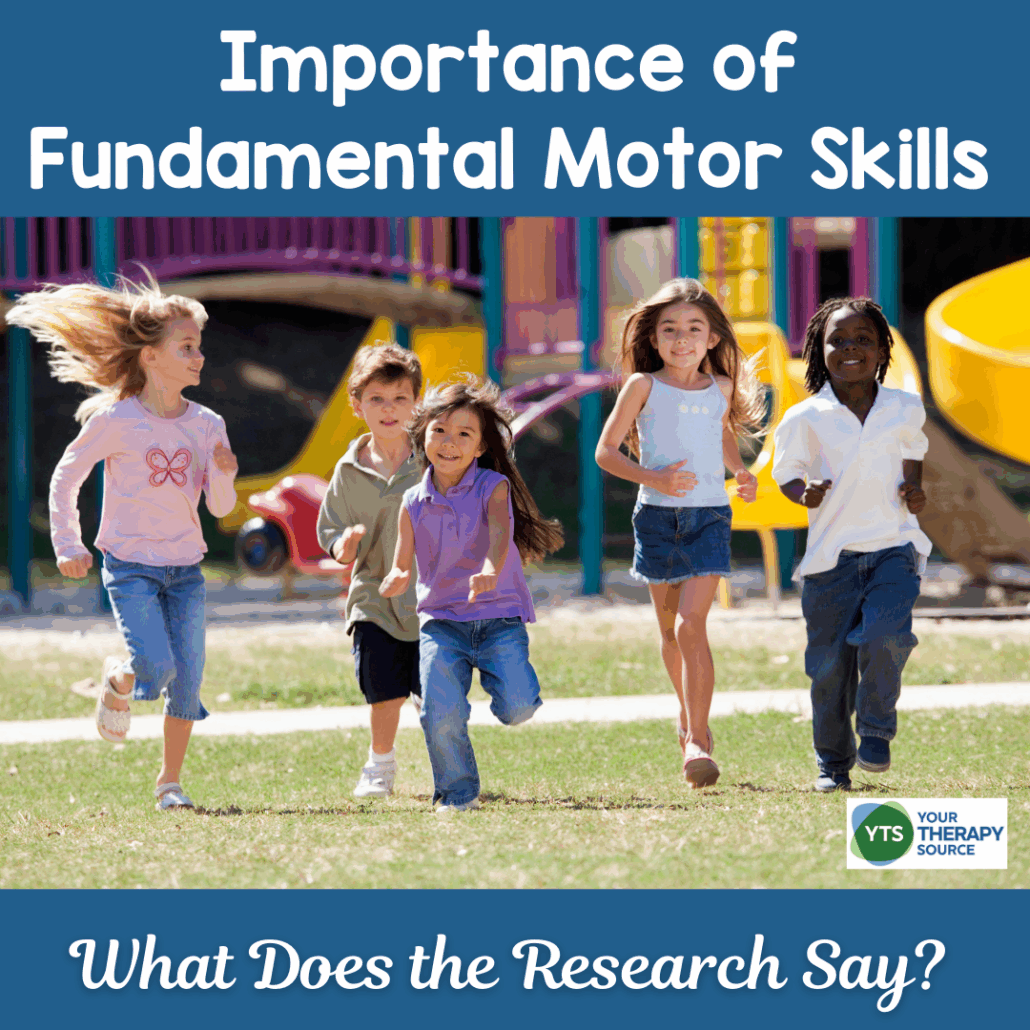
Benefits of Developing Fundamental Movement Skills
Research shows that children who develop fundamental movement skills experience wide-ranging physical, cognitive, and emotional benefits:
- Increased participation in physical activity: Children with stronger skills such as running, jumping, catching, and balancing are more likely to take part in games, sports, and play with peers, which helps establish an active lifestyle early in life.
- Improved overall fitness: Mastery of movement skills is linked to health-related components of fitness, including muscular strength, flexibility, and agility.
- Better cardiorespiratory endurance: Developing fundamental movement skills supports the ability to sustain aerobic activity, improving heart and lung health and allowing children to keep up during active play and sports.
- Lower risk of obesity: Children who lack basic movement competence may withdraw from physical activity, leading to reduced energy expenditure and a higher chance of weight gain. Proficient movers are more protected against obesity.
- Enhanced executive functioning: Movement skill development is associated with cognitive benefits, including better focus, planning, working memory, and self-control.
- Improved self-perception and confidence: Successfully learning and practicing movement skills boosts children’s belief in their own abilities. This positive self-image encourages them to try new activities and persist when challenges arise.
- Opportunities for social participation: Schools are critical environments where children practice movement skills through games, activities, and recess. These experiences naturally support peer interaction and inclusion.
- A foundation for lifelong healthy habits: Competence in movement during childhood sets the stage for physical activity throughout life. Children who are skilled movers in elementary years are more likely to continue participating in sports, recreation, and exercise as adults.
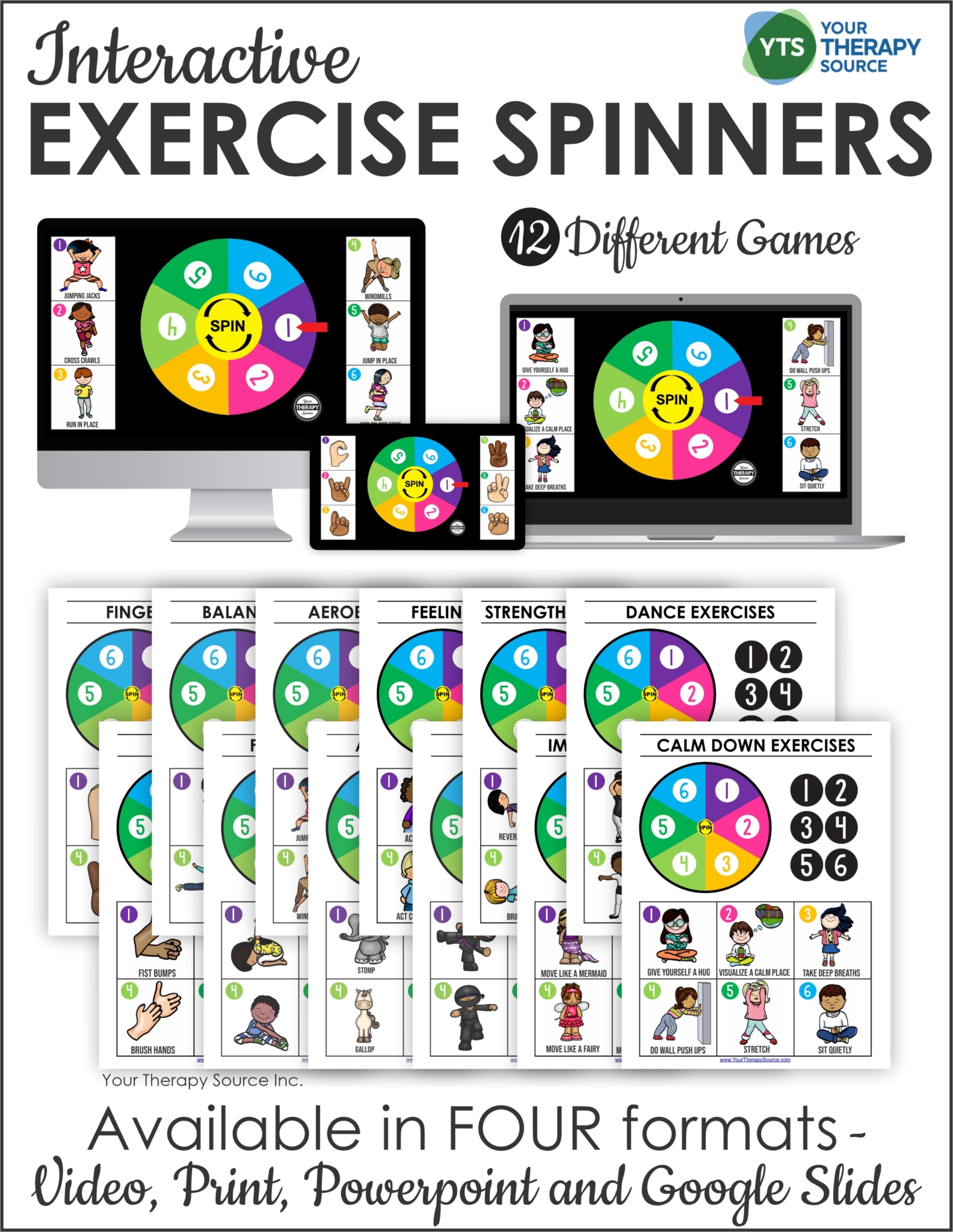
Fitness Games for Kids – Exercise Spinners
What Does the Research Say About Fundamental Motor Skills?
A 2025 systematic review and meta-analysis examined 33 studies from 14 countries to determine how effective school-based programs are for improving fundamental movement skills in children aged 6 to 12.
Key findings included:
- More than 90 percent of the studies reported that their programs improved children’s fundamental movement skills.
- Most of the programs were delivered during the school day in classrooms or physical education lessons.
- Activities ranged from structured sports such as badminton, swimming, and taekwondo to yoga, active play, dance, and integrated lessons where movement was combined with academic content.
- The researchers studied how the duration of each session, the number of sessions per week, and the total length of the programs influenced the outcomes.
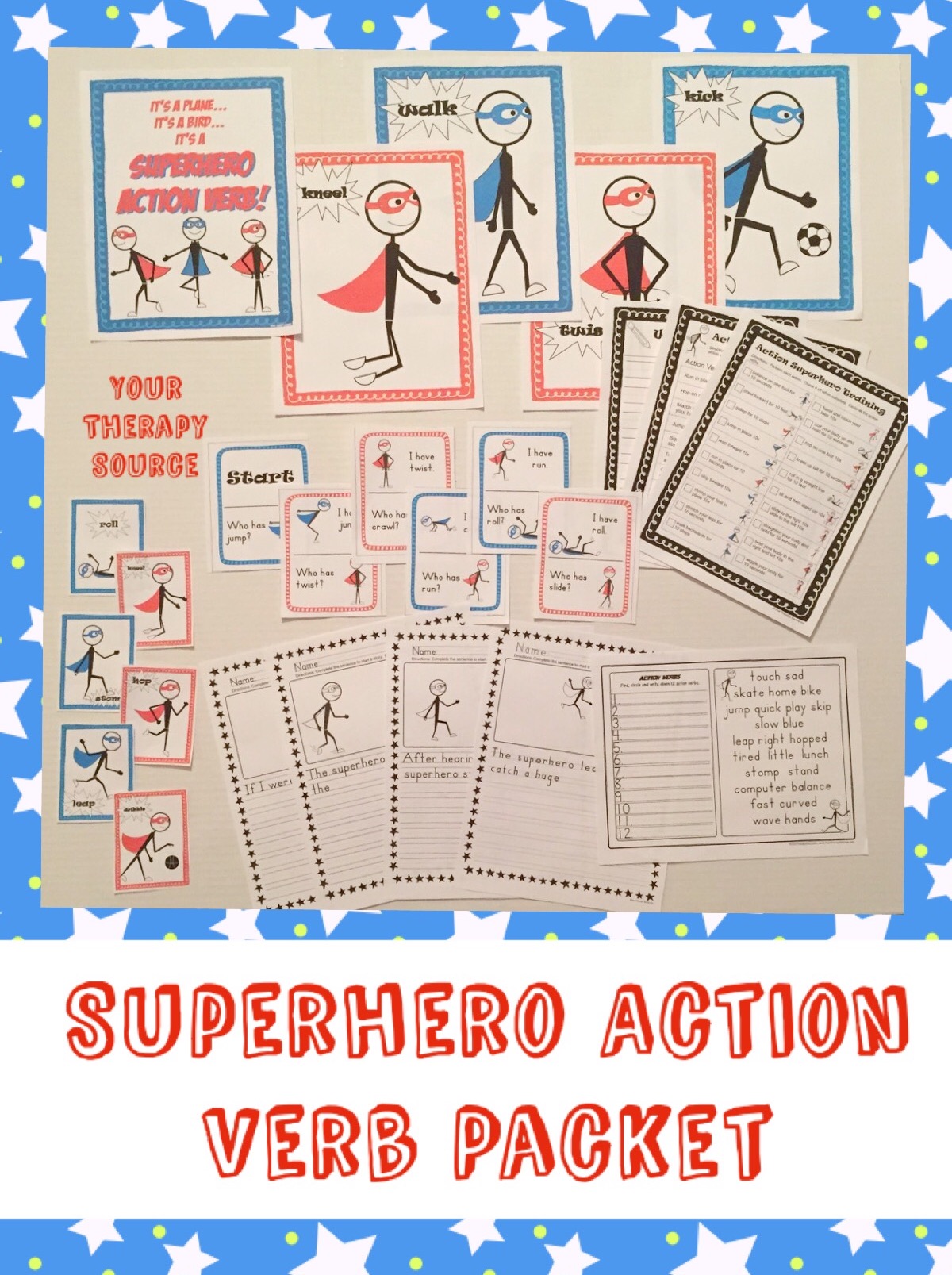
Superhero Action Verbs
What Works Best for Building Fundamental Movement Skills
The review revealed that certain program characteristics made the greatest impact:
- Duration: Sessions lasting 60 minutes or more produced the strongest improvements.
- Frequency: Programs offered three times per week or more were the most effective.
- Length of program: Interventions lasting 10 to 20 weeks showed the best results. Shorter programs of fewer than 6 weeks were less effective, while programs longer than 20 weeks sometimes saw reduced engagement or interest.
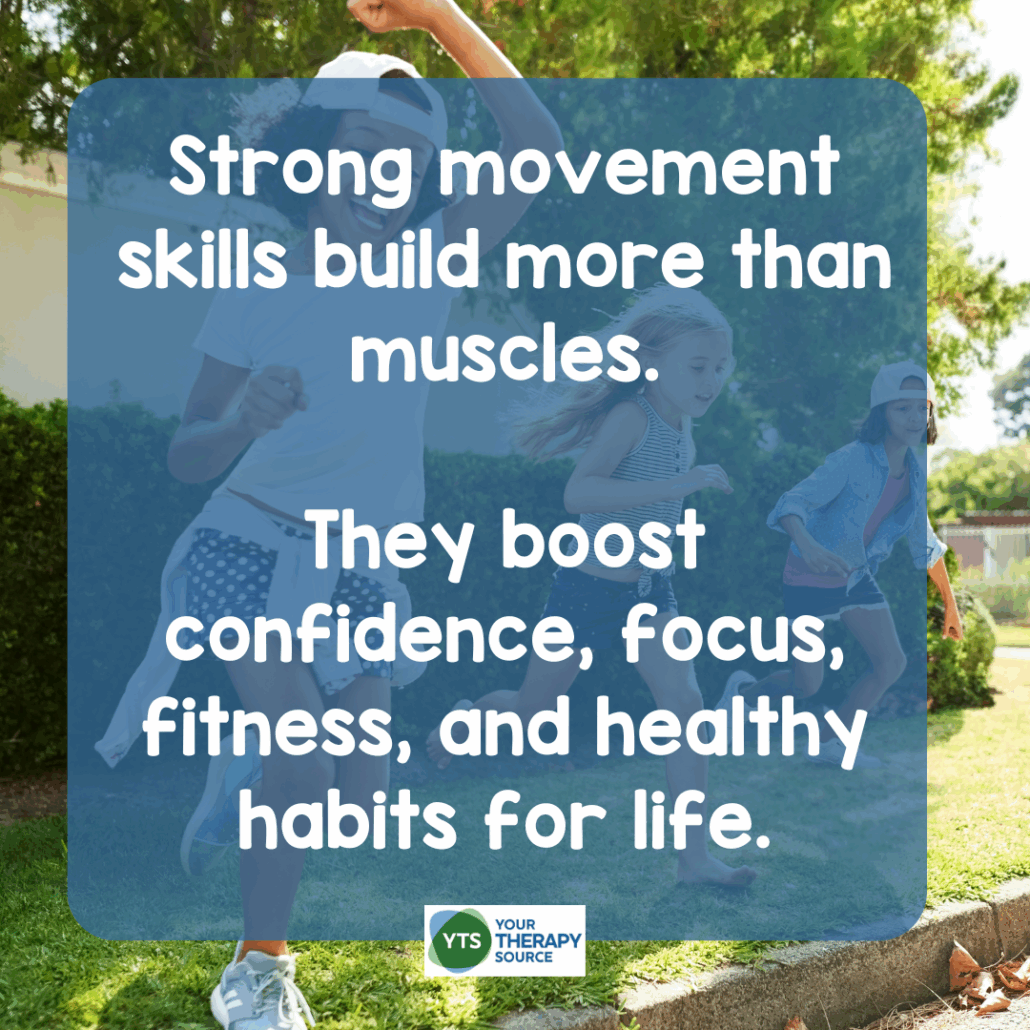
Suggestions to Encourage Fundamental Motor Skills for Schools and Therapists
For teachers and school staff:
- Provide daily opportunities for movement, not just weekly physical education classes.
- Incorporate active learning strategies, such as academic games that include movement.
- Seek professional development and resources to feel more confident in teaching movement skills.
For occupational and physical therapists:
- Embed skill practice into natural school routines, transitions, and recess.
- Advocate for programs that meet the optimal session length, frequency, and duration found in the research.
- Share quick activities with teachers that reinforce therapy goals and keep students engaged.
For parents:
- Encourage skill practice at home through playful activities such as ball games, skipping, or obstacle courses.
- Protect time for unstructured outdoor play, which supports natural skill development.
- Remember that children need repetition and variety to master movement skills.
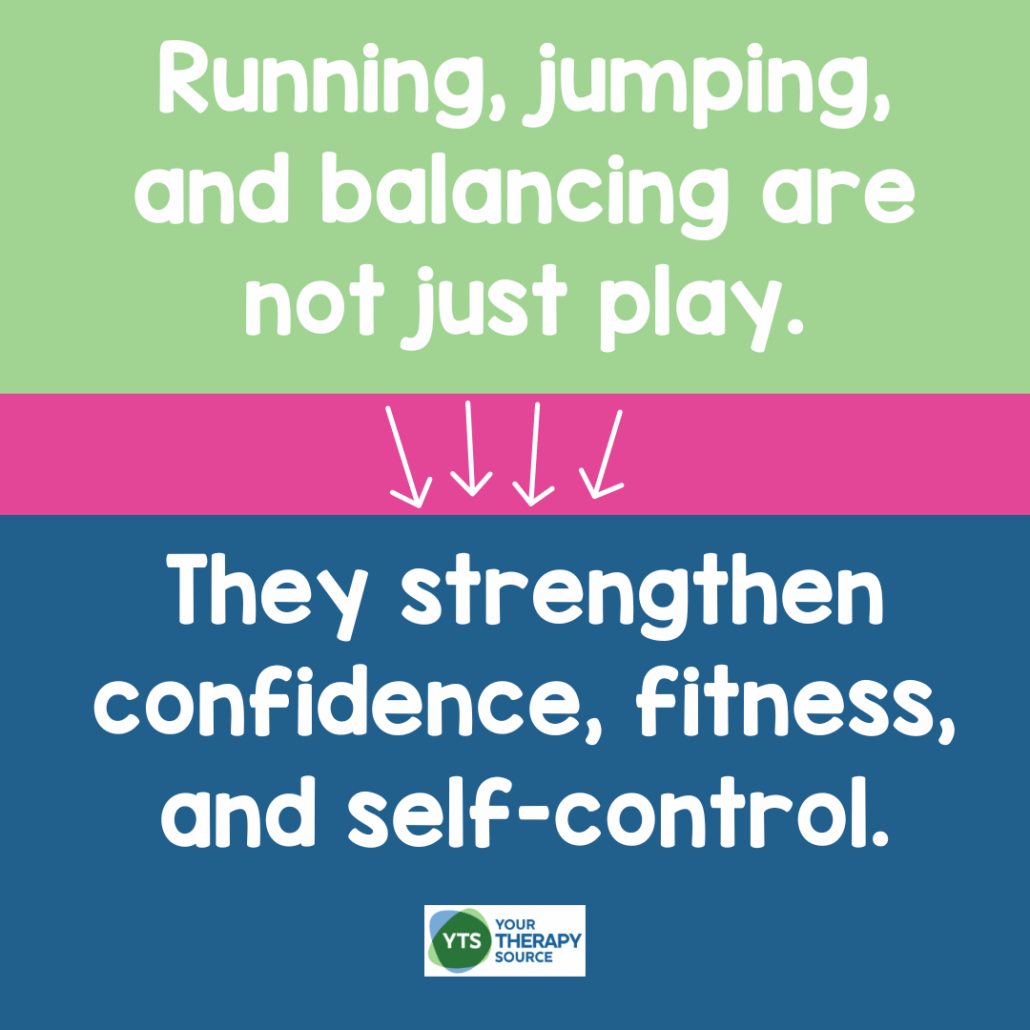
Practical Strategies to Try
Here are some simple ways to support fundamental movement skills at school or at home:
- Begin lessons with short running, hopping, or balancing activities.
- Create skill stations in gym class or therapy sessions that target different abilities.
- Incorporate dance or yoga breaks during the day to build coordination.
- Use games such as beanbag toss or hopscotch to combine learning with movement.
- Encourage outdoor free play as a daily routine for children.
This review confirms that school-based programs are highly effective in improving children’s fundamental movement skills. When programs are long enough, frequent enough, and sustained over several months, children show meaningful improvements in coordination, balance, confidence, endurance, and overall fitness.
The benefits extend well beyond physical education. Developing fundamental movement skills supports children’s participation, motivation, health, and future physical activity. By working together, teachers, therapists, and parents, can ensure that every child has the chance to master these essential skills for a lifetime of well-being.
Reference
Yin, X., Zhang, D., Shen, Y., Wang, Y., Wang, Z., & Liu, Y. (2025). Effectiveness of school-based interventions on fundamental movement skills in children: a systematic review and meta-analysis. BMC Public Health, 25(1), 1522.


